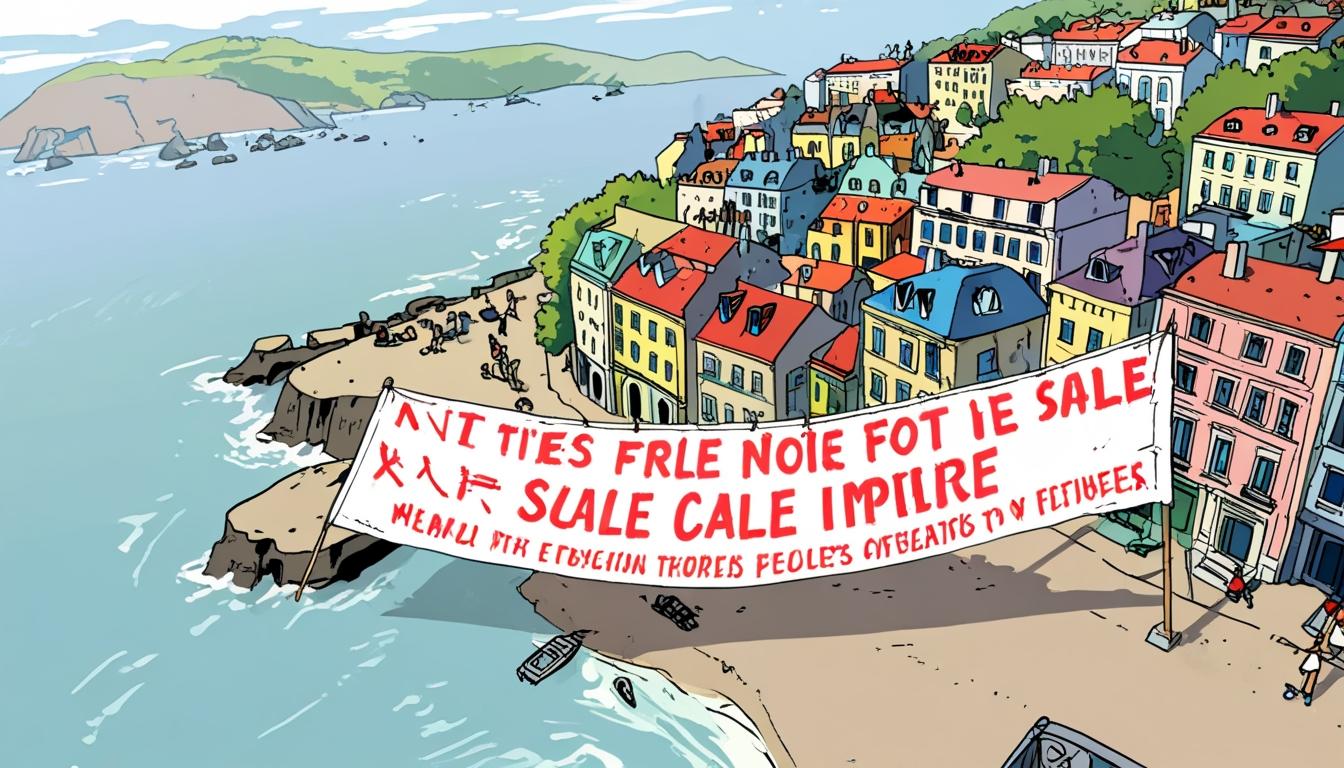Protest groups representing communities across southern Europe have issued a cautionary warning to British tourists planning holidays to Spain, Italy, France, and Portugal this summer, signalling that direct actions may be taken to curb mass tourism in their regions.
At a recent three-day summit in Barcelona, activists from the SET European Network Against Touristification, which includes representatives from 17 cities, islands, and communities, voiced their growing frustration over what they describe as ‘predatory tourism’. They argue that the influx of tourists has led to soaring rents, a scarcity of affordable housing, and environmental degradation in popular holiday destinations.
Elena Boschi, a 46-year-old English teacher and campaigner from Genoa on the Italian Riviera, expressed the urgency felt by many locals. Speaking at the summit, she said: “We want tourists to have some level of fear about the situation – without fear there is no change.” She emphasised that their cities and regions “are not for sale” and called for a limit to tourism growth, advocating for a strategy of tourism de-growth.
When asked about the possibility of protests at airport terminals, one of the network leaders, Daniel Pardo, replied: “It is a possibility – but it is difficult to say because each territory will decide how they want to take action, there is no one set strategy.” This leaves open the option that actions could take different forms depending on local circumstances.
Data cited at the summit highlighted the economic pressures facing residents. For example, house prices in Spain have risen by over 44% in the past decade, while average rents have doubled. The supply of residential rentals has also halved since the 2020 pandemic, largely due to a growth in short-term tourist rentals. These factors have sparked large-scale protests in Spain, where hundreds of thousands marched across 40 cities last summer, including over 50,000 in Palma, Mallorca, holding slogans such as “Mallorca is not for sale” and “no houses without people, nor people without houses”.
Maria Cardona, another SET network member from Ibiza, spoke about the severity of the housing crisis and the strain on local infrastructure. “The housing situation is really dramatic, there are hundreds of people living in tents and in cars so I think a lot of protest groups will be prepared to take more decisive action,” she said. Cardona also highlighted a water shortage problem on Ibiza, which worsens when the population triples in summer months.
Despite these tensions, many protestors stressed that they are not against tourists per se. One anonymous activist said: “We are not against tourists, but what we don’t welcome is a way of being in our cities and regions that turns it into a place that is no longer nice to live in for us. People need to think what it would feel like if this were happening in their hometown – we’re not interested in scaring anyone. It’s just about being mindful of the impact tourism can have on local communities.”
Tourism remains a vital sector for these countries. Spain, for example, received 94 million visitors last year, including at least 17.5 million from the UK, making it the second most visited country globally after France. However, local authorities have begun to respond to the challenges of overcrowding and housing shortages by targeting short-term tourist lettings. In Barcelona, officials have committed to phasing out 10,000 short-term rental permits, many advertised on platforms such as Airbnb, by 2028.
The SET European Network Against Touristification was established in 2018, and its initial efforts included releasing a manifesto detailing the negative impacts of mass tourism on housing affordability, community wellbeing, and local economies. A leaflet distributed at the Barcelona meeting proclaimed: “Early action aimed at imposing limits on tourism is an expression of a growing collective awareness that transcends borders. Each demonstration marks a moment, and perhaps, a turning point – we must push for the changes and policies that our cities and regions, the people who live in them and the whole planet need.”
With millions of British travellers expected to visit these southern European destinations this summer, the warnings from protest groups underscore an escalating push from local residents to reshape tourism and mitigate its impacts on housing and community life. The nature and scale of any protest actions remain uncertain, though the network’s leaders have indicated that stronger measures could be taken as the tourist season unfolds.
Source: Noah Wire Services
